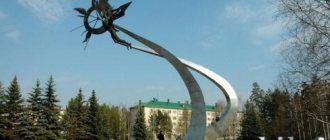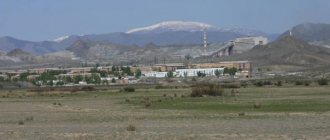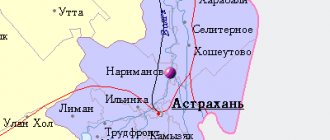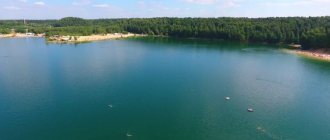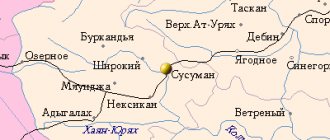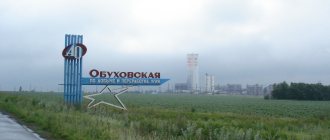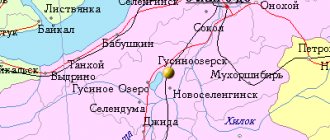This term has other meanings, see Fokino.
This term has other meanings, see Shkotovo (meanings).
It should not be confused with Fokino, a city in the Bryansk region.
| City Fokino Coat of arms |
| A country | Russia, Russia |
| Subject of the federation | Primorsky KraiPrimorsky Krai |
| Urban district | ZATO Fokino |
| Coordinates | 42°58′00″ n. w. 132°24′00″ E. d. / 42.96667° n. w. 132.40000° E. d. / 42.96667; 132.40000 (G) [www.openstreetmap.org/?mlat=42.96667&mlon=132.40000&zoom=15 (O)] (Z)Coordinates: 42°58′00″ N. w. 132°24′00″ E. d. / 42.96667° n. w. 132.40000° E. d. / 42.96667; 132.40000 (G) [www.openstreetmap.org/?mlat=42.96667&mlon=132.40000&zoom=15 (O)] (I) |
| Based | 1891 |
| Former names | until 1980 — Pacific until 1994 - |
| City with | 1980 |
| Square | 16 km² |
| Population | ↗23,219[1] people (2016) |
| Agglomeration | 32 771 |
| National composition | Russians |
| Names of residents | Fokintsy |
| Timezone | UTC+10 |
| Telephone code | +7 42339 |
| Postal codes | 69288x |
| Vehicle code | 25, 125 |
| OKATO code | [classif.spb.ru/classificators/view/okt.php?st=A&kr=1&kod=05547 05 547] |
| Official site | [adm.fokino-prim.ru/ino-prim.ru] |
Audio, photo and video
on Wikimedia Commons
K: Settlements founded in 1891
Fokino
- a city with the status of a closed administrative-territorial entity in the Primorsky Territory of Russia. It is located in an intermountain basin near Strelok Bay on the Pacific coast, 119 km from Vladivostok[2].
In addition to the city itself, the ZATO includes the villages of Danube, Putyatin, Rudnevo, Domashlino. On the territory of the closed city of Fokino there is a naval base of the Russian Pacific Fleet of the same name.[3]
Name
Initially: 88 people from Ukraine were sent under the Stolypin reform. The village was called Promyslovka. Then, under the Soviet regime, they decided to create a naval base and built a village below the hill and later gave it the name Pacific. Vitaly Alekseevich Fokin was the first builder of the base. The town was eventually named after him. On closed maps the town was called Fokino.
In 1963-1980 it was called Pacific
, given by the local oceanonym. In 1980, it was renamed in honor of the commander of the Pacific Fleet, Admiral Vitaly Alekseevich Fokin. Officially renamed from Tikhas to Fokino by decree of the Government of the Russian Federation at the beginning of 1992. In common parlance, the name “Tikhas” derived from the previous name is found[3].
Tourism [edit]
It is a closed city because the Russian Pacific Fleet is based there. Foreigners must have special permission to visit the city. However, the islands of Putyatin and Askold, which are part of the territory administered by the city, are open to tourists. Up to two thousand tourists visit Putyatin every year. They are attracted to the unique flora and fauna in the waters surrounding this island and its underwater landscape. Putyatin Island is inhabited by about 2,400 people. Their main occupation is catching and processing seafood, breeding mink and sika deer.
There is no permanent population on Askold. It is rarely visited by tourists due to the lack of regular transport links with the mainland and the status of the island, which until 1995 was part of a reserve where economic activity was prohibited. On Askold there are tens of tons of gold deposits.
Geographical position
The city is located 2 km from the shore of Peter the Great Bay, 130 km from Vladivostok and 50 km from Nakhodka.
Climate
- Average annual air temperature - 6.8 °C
- Average wind speed - 6.0 m/s
| Climate Fokino | |||||||||||||
| Index | Jan. | Feb. | March | Apr. | May | June | July | Aug. | Sep. | Oct. | Nov. | Dec. | Year |
| Average maximum, °C | −6,2 | −3 | 2,7 | 9,4 | 14,5 | 18,8 | 22,2 | 23,6 | 20,0 | 13,5 | 4,8 | −2,8 | 9,9 |
| Average temperature, °C | −9,3 | −5,9 | −0,1 | 6,1 | 11,0 | 15,3 | 19,0 | 20,6 | 17,0 | 10,5 | 1,8 | −6 | 6,8 |
| Average minimum, °C | −12,2 | −8,8 | −3 | 2,8 | 7,8 | 12,3 | 16,2 | 17,9 | 14,2 | 7,7 | −0,8 | −8,7 | 3,9 |
| Source: [primorsky-meteo.ru/fokino/pivot/temperature Meteorological statistics of Primorsky Krai] | |||||||||||||
Disease prevention
Main preventive measures:
- avoid visiting crowded places, maintain a distance of at least 1.5 meters between people, avoid shaking hands or kissing when meeting friends;
- when in a public place, protect the respiratory tract by wearing a mask (respirator); it is also advisable to wear glasses to prevent infection from getting into the mucous membranes of the eyes;
- do not touch your face with your hands, especially when outside the home;
- upon arriving home, wash your hands thoroughly with soap;
- if hygiene procedures are not possible, you should use a sanitizer;
- make purchases in the evening, when there are a minimum number of people in stores and pharmacies;
- When sneezing and coughing, use disposable handkerchiefs or tissues, which must be disposed of immediately.
When the first symptoms of acute respiratory diseases appear, you should seek medical help. You cannot self-medicate or ignore signs of illness. A timely test will not only help begin the necessary treatment, but also prevent further spread of the infection.
Share statistics on coronavirus cases with your friends and acquaintances. Knowing the symptoms of the disease and prevention measures will help stop further spread of infection and protect the most vulnerable parts of the population.
COVID-19 is a new disease that has proven to be a challenge for all of humanity. Competent and responsible behavior of each of us during a pandemic will significantly reduce risks.
Story
Village Promyslovka
Petrovskaya volost, Olginsky district, Primorsky region, founded in 1891.
By a resolution of the Presidium of the All-Russian Central Executive Committee of January 4, 1926, the Shkotovo district was formed with its center in the village of Shkotovo, which included the Promyslovsky Village Council.
By decision of the Primorsky Regional Executive Committee of January 17, 1958 No. 55, the settlement of Promyslovka
classified as working settlements.
Pacific Village
Shkotovsky district of the Primorsky Territory, registered as a settlement by decision of the Primorsky Regional Executive Committee of November 13, 1963 No. 726 and classified as workers' settlements by decision of the Primorsky Regional Executive Committee of December 28, 1967 No. 1384, and the working village of Promyslovka by the same decision was classified as a rural settlement and in Later it entered the boundaries of the village
of Pacific
.
Pacific Village
By Decree of the Presidium of the Supreme Soviet of the RSFSR dated October 4, 1980 No. 10-ss, it was separated from the Shkotovo district and renamed the closed city of
Fokino
, to which, by order of the regional executive committee of November 12, 1980 No. 855-rs, the postal address of Shkotovo-17 was established due to the closure of the territory .
Since January 4, 1994, in accordance with the order of the Government of the Russian Federation dated January 4, 1994 No. 3-r, the administration of the Primorsky Territory dated February 18, 1994 No. 172-r “On the official geographical names of settlements”, the official geographical name of the settlement Shkotovo is used -17 — Fokino
.
“The history of the creation of this settlement was determined by the history of the development of the Pacific Fleet. And today, after the collapse of what happened in the 90s of the 20th century, residents of the territory are reviving their hopes for the future due to the prospect of increasing the role of the urban district of the ZATO and the city of Fokino in the infrastructure system that ensures the basing and combat readiness of ships and units of the Pacific Fleet.”[4].
After the reduction of the SSBN flotilla in Pavlovsk and the actual cessation of ship exits from Abrek Bay, ZATO Fokino (DalRAO facility in Razboinik Bay) is again fulfilling an important state task - the disposal and storage (for 70 years) of reactor compartments of submarines withdrawn from the Navy at Far East[5].
Transport
One of the main roads of the Primorsky Territory, Vladivostok-Nakhodka, passes through the territory of the ZATO, along which the city district communicates with other populated areas of the region. Bus routes follow this road: Vladivostok-Nakhodka, Fokino-Vladivostok, Fokino-Bolshoy Kamen, Fokino-Smolyaninovo Fokino-Podyapolsk and others. Within the district there are also routes between parts of the ZATO: Fokino-Danube, Fokino-Pavlovsk. There is a ferry service between the villages of Danube and Putyatin. There is a railway branch from the Uglovoye-Nakhodka railway line: B. Kamen - Danube, B. Kamen - Fokino. The nearest largest railway stations are Shkotovo, Smolyaninovo and Nakhodka.
Notes
- ↑ 12
www.gks.ru/free_doc/doc_2016/bul_dr/mun_obr2016.rar Population of the Russian Federation by municipalities as of January 1, 2016 - [www.ati.su/Trace/Default.aspx?EntityType=Trace&City1=9024&City5=3073 Calculation of distances between cities]. [www.webcitation.org/618OIo1ih Archived from the original on August 22, 2011].
- ↑ 12
[vladnews.ru/2329/Situacija/Jest_li_budushheje_u_Fokino Does Fokino have a future?]. vladnews.ru. Retrieved July 13, 2016. - [rud.exdat.com/docs/index-622310.html?page=2 Historical sketch]
- [www.iaea.org/OurWork/ST/NE/NEFW/CEG/documents/ws052010/4.4%20Lysenko%20Rus.pdf SNF and RW management infrastructure at FSUE "DalRAO"]
- Populated and residential areas of the Primorsky district. Peasants. Foreigners. Yellow: population census June 1-20, 1915 / Ministry of Agriculture, Primorsky Migration District, Statistical Department. — Vladivostok: Type. Primorsky region board, 1915. - XVI, 136 p. : table ; thirty
- [demoscope.ru/weekly/ssp/rus59_reg2.php All-Union Population Census of 1959. The size of the urban population of the RSFSR, its territorial units, urban settlements and urban areas by gender] (Russian). Demoscope Weekly. Retrieved September 25, 2013. [www.webcitation.org/6GDOghWC9 Archived from the original on April 28, 2013].
- [demoscope.ru/weekly/ssp/rus70_reg2.php All-Union Population Census of 1970 The size of the urban population of the RSFSR, its territorial units, urban settlements and urban areas by gender.] (Russian). Demoscope Weekly. Retrieved September 25, 2013. [www.webcitation.org/6GDOiMstp Archived from the original on April 28, 2013].
- [demoscope.ru/weekly/ssp/rus79_reg2.php All-Union Population Census of 1979 The size of the urban population of the RSFSR, its territorial units, urban settlements and urban areas by gender.] (Russian). Demoscope Weekly. Retrieved September 25, 2013. [www.webcitation.org/6GDOjhZ5L Archived from the original on April 28, 2013].
- ↑ 123456
www.MojGorod.ru/primor_kraj/fokinop/index.html People's encyclopedia “My City”. Fokino (Primorsky Krai) - [www.perepis2002.ru/ct/doc/1_TOM_01_04.xls All-Russian Population Census 2002. Volume. 1, table 4. Population of Russia, federal districts, constituent entities of the Russian Federation, districts, urban settlements, rural settlements - regional centers and rural settlements with a population of 3 thousand or more]. [www.webcitation.org/65AdCU0q3 Archived from the original on February 3, 2012].
- [www.gks.ru/bgd/regl/B09_109/IssWWW.exe/Stg/d01/tabl-21-09.xls Number of permanent population of the Russian Federation by cities, urban-type settlements and districts as of January 1, 2009]. Retrieved January 2, 2014. [www.webcitation.org/6MJmu0z1u Archived from the original on January 2, 2014].
- [www.primstat.ru/VPN2010/webpages/chislNas.mht Population of urban districts, municipal districts, urban and rural settlements, urban settlements, rural settlements. All-Russian Population Census 2010 (as of October 14, 2010). Primorsky Krai]. Retrieved August 31, 2013. [www.webcitation.org/6HISX870K Archived from the original on June 11, 2013].
- [www.gks.ru/free_doc/doc_2012/bul_dr/mun_obr2012.rar Population of the Russian Federation by municipalities. Table 35. Estimated resident population as of January 1, 2012]. Retrieved May 31, 2014. [www.webcitation.org/6PyOWbdMc Archived from the original on May 31, 2014].
- [www.gks.ru/free_doc/doc_2013/bul_dr/mun_obr2013.rar Population of the Russian Federation by municipalities as of January 1, 2013. - M.: Federal State Statistics Service Rosstat, 2013. - 528 p. (Table 33. Population of urban districts, municipal districts, urban and rural settlements, urban settlements, rural settlements)]. Retrieved November 16, 2013. [www.webcitation.org/6LAdCWSxH Archived from the original on November 16, 2013].
- [www.gks.ru/free_doc/doc_2014/bul_dr/mun_obr2014.rar Table 33. Population of the Russian Federation by municipalities as of January 1, 2014]. Retrieved August 2, 2014. [www.webcitation.org/6RWqP50QK Archived from the original on August 2, 2014].
- [www.gks.ru/free_doc/doc_2015/bul_dr/mun_obr2015.rar Population of the Russian Federation by municipalities as of January 1, 2015]. Retrieved August 6, 2015. [www.webcitation.org/6aaNzOlFO Archived from the original on August 6, 2015].
- [fokino.me/place/strausinaya-ferma.html Ostrich farm]. fokino.me. Retrieved July 14, 2016.
- [www.nakhodka-city.ru/files/turizm/F2.doc 2. HISTORICAL AND CULTURAL OBJECTS]
An excerpt characterizing Fokino (Primorsky Territory)
“Well, well,” said Prince Andrei, turning to Alpatych, “tell me everything, as I told you.” - And, without answering a word to Berg, who fell silent next to him, he touched his horse and rode into the alley. The troops continued to retreat from Smolensk. The enemy followed them. On August 10, the regiment, commanded by Prince Andrei, passed along the high road, past the avenue leading to Bald Mountains. The heat and drought lasted for more than three weeks. Every day, curly clouds walked across the sky, occasionally blocking the sun; but in the evening it cleared again, and the sun set in a brownish-red haze. Only heavy dew at night refreshed the earth. The bread that remained on the root burned and spilled out. The swamps are dry. The cattle roared from hunger, not finding food in the sun-burnt meadows. Only at night and in the forests there was still dew and there was coolness. But along the road, along the high road along which the troops marched, even at night, even through the forests, there was no such coolness. The dew was not noticeable on the sandy dust of the road, which had been pushed up more than a quarter of an arshin. As soon as dawn broke, the movement began. The convoys and artillery walked silently along the hub, and the infantry were ankle-deep in soft, stuffy, hot dust that had not cooled down overnight. One part of this sand dust was kneaded by feet and wheels, the other rose and stood as a cloud above the army, sticking into the eyes, hair, ears, nostrils and, most importantly, into the lungs of people and animals moving along this road. The higher the sun rose, the higher the cloud of dust rose, and through this thin, hot dust one could look at the sun, not covered by clouds, with a simple eye. The sun appeared as a large crimson ball. There was no wind, and people were suffocating in this still atmosphere. People walked with scarves tied around their noses and mouths. Arriving at the village, everyone rushed to the wells. They fought for water and drank it until they were dirty. Prince Andrei commanded the regiment, and the structure of the regiment, the welfare of its people, the need to receive and give orders occupied him. The fire of Smolensk and its abandonment were an era for Prince Andrei. A new feeling of bitterness against the enemy made him forget his grief. He was entirely devoted to the affairs of his regiment, he was caring for his people and officers and affectionate with them. In the regiment they called him our prince, they were proud of him and loved him. But he was kind and meek only with his regimental soldiers, with Timokhin, etc., with completely new people and in a foreign environment, with people who could not know and understand his past; but as soon as he came across one of his former ones, from the staff, he immediately bristled again; he became angry, mocking and contemptuous. Everything that connected his memory with the past repulsed him, and therefore he tried in the relations of this former world only not to be unfair and to fulfill his duty. True, everything seemed to Prince Andrei in a dark, gloomy light - especially after they left Smolensk (which, according to his concepts, could and should have been defended) on August 6, and after his father, sick, had to flee to Moscow and throw the Bald Mountains, so beloved, built and inhabited by him, for plunder; but, despite this, thanks to the regiment, Prince Andrei could think about another subject completely independent of general issues - about his regiment. On August 10, the column in which his regiment was located reached Bald Mountains. Prince Andrey received news two days ago that his father, son and sister had left for Moscow. Although Prince Andrei had nothing to do in Bald Mountains, he, with his characteristic desire to relieve his grief, decided that he should stop by Bald Mountains. He ordered a horse to be saddled and from the transition rode on horseback to his father’s village, in which he was born and spent his childhood. Driving past a pond, where dozens of women were always talking, beating rollers and rinsing their laundry, Prince Andrei noticed that there was no one on the pond, and a torn raft, half filled with water, was floating sideways in the middle of the pond. Prince Andrei drove up to the gatehouse. There was no one at the stone entrance gate, and the door was unlocked. The garden paths were already overgrown, and calves and horses were walking around the English park. Prince Andrei drove up to the greenhouse; the glass was broken, and some trees in tubs were knocked down, some withered. He called out to Taras the gardener. Nobody responded. Walking around the greenhouse to the exhibition, he saw that the wooden carved fence was all broken and the plum fruits were torn from their branches. An old man (Prince Andrei saw him at the gate as a child) sat and weaved bast shoes on a green bench. He was deaf and did not hear Prince Andrei's entrance. He was sitting on the bench on which the old prince liked to sit, and near him was hung a stick on the branches of a broken and dried magnolia. Prince Andrei drove up to the house. Several linden trees in the old garden were cut down, one piebald horse with a foal was walking in front of the house between the rose trees. The house was boarded up with shutters. One window downstairs was open. The yard boy, seeing Prince Andrei, ran into the house. Alpatych, having sent his family away, remained alone in Bald Mountains; he sat at home and read the Lives. Having learned about the arrival of Prince Andrey, he, with glasses on his nose, buttoned up, left the house, hastily approached the prince and, without saying anything, began to cry, kissing Prince Andrey on the knee. Then he turned away with his heart at his weakness and began to report to him on the state of affairs. Everything valuable and expensive was taken to Bogucharovo. Bread, up to a hundred quarters, was also exported; hay and spring, extraordinary, as Alpatych said, this year’s harvest was taken green and mowed - by the troops. The men are ruined, some also went to Bogucharovo, a small part remains. Prince Andrei, without listening to him, asked when his father and sister left, meaning when they left for Moscow. Alpatych answered, believing that they were asking about leaving for Bogucharovo, that they left on the seventh, and again went on about the shares of the farm, asking for instructions. – Will you order the oats to be released to the teams against receipt? “We still have six hundred quarters left,” Alpatych asked. “What should I answer him? - thought Prince Andrei, looking at the old man’s bald head shining in the sun and reading in his expression the consciousness that he himself understood the untimeliness of these questions, but was asking only in such a way as to drown out his own grief. “Yes, let go,” he said. “If you deigned to notice disturbances in the garden,” said Alpatych, “it was impossible to prevent: three regiments passed through and spent the night, especially the dragoons.” I wrote down the rank and rank of commander to submit the petition. - Well, what are you going to do? Will you stay if the enemy takes over? – Prince Andrei asked him. Alpatych, turning his face to Prince Andrei, looked at him; and suddenly raised his hand upward with a solemn gesture. “He is my patron, his will be done!” - he said. A crowd of men and servants walked across the meadow, with their heads open, approaching Prince Andrei. - Well, goodbye! - said Prince Andrei, bending over to Alpatych. - Leave yourself, take away what you can, and they told the people to go to Ryazan or Moscow Region. – Alpatych pressed himself against his leg and began to sob. Prince Andrei carefully pushed it aside and, starting his horse, galloped down the alley. At the exhibition, still as indifferent as a fly on the face of a dear dead man, an old man sat and tapped his bast shoe, and two girls with plums in their hems, which they had picked from the greenhouse trees, ran from there and stumbled upon Prince Andrei. Seeing the young master, the eldest girl, with fear expressed on her face, grabbed her smaller friend by the hand and hid with her behind a birch tree, not having time to pick up the scattered green plums.
Symptoms of the disease
The main signs of coronavirus infection include:
- debilitating dry cough;
- increased body temperature accompanied by chills;
- difficulty breathing and shortness of breath;
- headache;
- sore throat, difficulty swallowing;
- loss of smell and nasal congestion;
- digestive disorders - in rare cases;
- general weakness, increased fatigue.
In 80% of cases, coronavirus is mild or moderate, and its symptoms are similar to those of other acute respiratory diseases. In other cases, especially in the presence of concomitant chronic diseases, complications are possible in the form of bilateral pneumonia, requiring connection to a ventilator.


